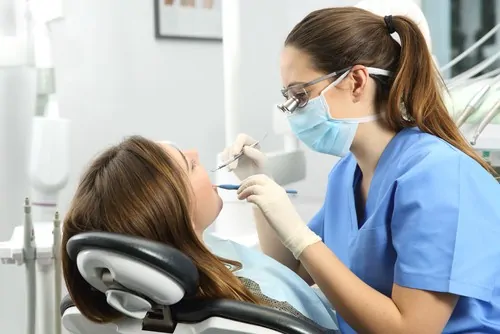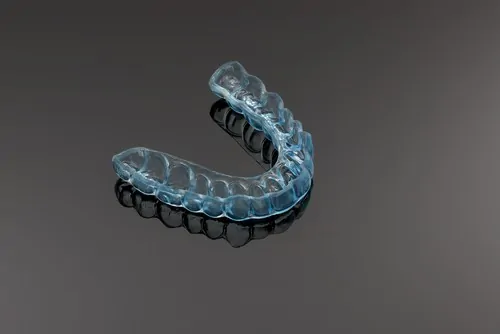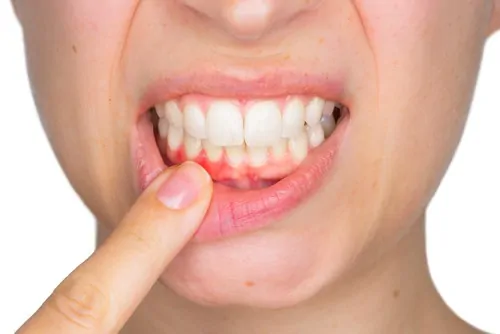Blog
Find Relief From Your Dental Fear

Dental fear is incredibly common among adult Americans. In fact, an estimated 80 million Americans have some level of dental fear. While the team at our dental office in Douglasville certainly understands that being afraid of the dentist is a very real thing, we also always want to try our best to help our patients and neighbors understand how they can overcome that fear and, dare we say, start to enjoy visits to the dentist.
Top Causes of Dental Fear
Dental fear can be brought on by a number of different things, but some of the most common reasons include fear of pain, embarrassment, losing control, or a negative past experience. It’s important for you and your dental team to work together to try to identify the source behind your fear so you can work better together to overcome it.
4 Ways to Ease Dental Fear
Talk About It. Perhaps the most important way to combat dental fear is to establish trust with your dentist in Douglasville. It may help if your dentist talks you through the appointment, letting you know exactly what is going to happen next and what you should expect. Discuss your concerns with your dental team to find what works best for you.
Distract Yourself. We understand that lying down in a dental chair while we poke around in your mouth can cause some people to feel uneasy, and that’s ok. Instead of focusing on what we’re doing, it may help to have a distraction handy. Consider bringing some music and headphones to your next visit or talk with your dental team to see if they have any amenities you can take advantage of.
Just Breathe. Practicing breathing techniques and focusing on breathing patterns has been proven to lower anxiety levels. There are numerous instructional videos online and even some courses you can take to help you. But essentially, close your eyes, take deep breaths, filling the lower part of your belly, and steadily release.
Bring a Friend. If it’s your first dental visit in awhile, have a trusted friend tag along with you. The presence of a trusted person can go a long way in helping you feel relaxed. Make a date out of it and treat them to lunch afterwards.
We Know You Can Do It
Maintaining regular dental cleanings and checkups every six months can be especially hard for those with dental fear. But keeping up with these visits is crucial for good oral health and to avoid more in-depth treatment in the future. Bi-yearly dental appointments help identify and treat any potential problems early and are key to keeping your mouth pain-free and cavity-free.
Whether it’s been awhile since you’ve seen a dentist due to dental fear, or even if you’re just searching for a new dental home, we welcome you to call our Douglasville dental office to schedule an appointment. Our entire team is dedicated to treating each and every patient with the gentle care they deserve and we’d be happy to work with you on easing any fears you may have.
Happy National Dental Hygiene Month!

October is commonly recognized as the month packed with pumpkins, scarecrows, trick-or-treaters, and all things Halloween. At our dental office in Douglasville, October has another important meaning that’s near and dear to our hearts; it’s National Dental Hygiene month – when we recognize our dedicated dental hygienists and bring awareness to the importance of proper oral health.
The Daily 4
Sponsored by the American Dental Hygienists’ Association (ADHA) and the Wrigley Oral Healthcare Program (WOHP), National Dental Hygiene Month has a different focus every year. In 2017, the theme is meant to drive awareness to the main components of a proper oral health routine including:
- Brushing
- Flossing
- Rinsing
- Chewing
The hygiene team that works closely with your dentist in Douglasville is dedicated to educating patients on the importance and proper techniques of these four crucial activities for a healthy mouth. Let’s take a closer look at each one…
Brushing
We’re all taught from an early age to brush our teeth before heading off to school in the morning and prior to hopping into bed at night. This lesson should follow us throughout our entire lives. But it’s not only important to brush every day, it’s crucial that you brush correctly every day. To make sure you’re getting the most out of your routine, always brush twice a day for two minutes each time and use gentle circles with your soft-bristled toothbrush.
Flossing
Brushing is only half of a healthy at home oral hygiene routine. You should absolutely floss in between each tooth every day. If you don’t, you leave about 35% of each tooth’s surface uncleaned and exposed to the dangers of decay.
Rinsing
Besides brushing and flossing, using a mouthwash that’s approved by the American Dental Association (ADA) can enhance your oral health. There are two types of mouthwash — cosmetic and therapeutic. Cosmetic mouthwash may temporarily mask bad breath but has no real oral health benefit, whereas therapeutic mouthwash with the ADA Seal of Acceptance has been tested to ensure it actually does what it claims, which is typically reducing bad breath, gingivitis, decay, and plaque.
Chewing
At our Douglasville dental office, we would love it if every one of our patients would brush their teeth after eating. But we understand that’s not always possible. Instead, we encourage patients to keep sugarless gum handy and chew it after meals. Chewing gum helps produce saliva, which then helps neutralize and rinse away bacteria left over from lunch. Just make sure it doesn’t contain sugar and look again for the ADA Seal of Acceptance.
These Daily 4 activities can go a long way in keeping your smile healthy. But even if you follow them exactly it’s still crucial to maintain your professional dental cleanings and bi-annual checkups. Regular dental visits help remove plaque and tartar and can help catch any potential problems early when treatment is still easy and more effective.
What’s a Dental Night Guard?

So you’ve just had your six month dental checkup and you were told you need to consider getting a dental night guard. What exactly is a dental night guard and what is it for? The team at our dental office in Douglasville is here to explain.
What’s a Dental Night Guard For?
Dental night guards are often the treatment of choice for patients who have a history of grinding their teeth while they sleep. Also known as bruxism, tooth grinding typically occurs at night when patients have no way of knowing they even do it. Chronic bruxism can lead to several problems with teeth and even the jaw. If left untreated, bruxism can cause broken, chipped, or cracked teeth, headaches, and TMJ/TMD. Bruxism can be treated and should be done so early to avoid future problems.
What Types of Night Guards Are Available?
There are two types of night guards: professional, custom-made and over-the-counter, boil and bite. While the night guards found at drugstores can work to reduce tooth grinding, there are several benefits to choosing a custom night guard made by a dentist. To begin, custom-made night guards use detailed molds of your teeth, making them a more comfortable choice. Your dentist will also consider the alignment of your jaw during the fitting process to ensure your night guard won’t place unnecessary stress on the joint which could lead to other problems. Lastly, while a store-bought night guard may seem attractive at first due to the lower cost, custom-made night guards usually last up to 10 years, making them a more cost-efficient option in the long run.
Are There Other Treatment Options?
Night guards may be the most common treatment method to stop tooth grinding, but it certainly isn’t the only option. Other recommended treatments may include methods of stress reduction, limiting the intake of caffeine or medication with stimulants, or perhaps orthodontics to straighten teeth and realign the jaw.
Signs of Bruxism
While your dentist in Douglasville is the best person to diagnose bruxism, there are several signs you should keep a lookout for in between visits including:
- Flat or chipped teeth
- Tooth sensitivity
- Waking up with sore jaw muscles
- Neck or facial pain
If you happen to notice any of these signs and suspect you may be grinding your teeth, we welcome you to give our Douglasville dental office a call to schedule an appointment. We’ll perform a thorough evaluation in our relaxing office to determine if bruxism is the root of what you’re experiencing. If it is we’ll talk with you about your treatment options and work together to decide which one may be best for you.
5 Things Every Dental Patient Should Know

A proper oral hygiene routine at home is just as important as your bi-annual dental appointments.
We typically recommend our patients visit us at least two times a year to have a dental checkup, professional cleaning, and sometimes digital x-rays. These appointments allow us to remove any plaque or tartar that may have built up since your last visit as well as monitor your oral health so we can catch and treat problems early. But these bi-annual visits are only half of what it takes to keep a mouth healthy. The American Dental Association (ADA) and your dentist in Douglasville recommend brushing your teeth twice a day, everyday, with a soft-bristled toothbrush and using gentle circles. It’s also critical to floss once a day to remove food particles and plaque from between teeth.
There’s such a thing as too much brushing.
Scrubbing your teeth may seem like a good idea, afterall, brushing harder must remove more plaque, right? Not necessarily. Brushing your teeth roughly can remove food particles, bacteria, and plaque, but it will also damage gum tissue and eventually cause it to recede. Once gum tissue recedes, the teeth appear longer and sensitivity tends to increase, making it difficult to enjoy some of your favorite cold or hot treats.
Sugary sweets aren’t the only foods that can cause cavities.
A commonly known fact is that a diet full of sugar typically results in more cavities. But a misconception is that sugar is the only cavity culprit. The truth is, many foods can affect oral health and contribute to decay. For example, foods high in carbohydrates like bread, pasta, and pretzels can feed bacteria in the mouth and cause cavities. Carbohydrates break down into simple sugars when eaten. Bacteria then feed on these sugars and eliminate an acidic byproduct. This acid then eats away at the protective tooth enamel, leaving teeth exposed to decay.
Bleeding gums are NOT normal.
Many people think that seeing a bit of blood in your sink as you brush or floss your teeth is normal. The truth is, no amount of blood is normal. Bleeding gums can be one of the first signs of gum disease which is a serious oral health problem that may not only lead to tooth loss, but can also affect the rest of the body. Gum disease has been linked to several systemic problems including diabetes, stroke, and heart disease.
Dry mouth can be a big problem.
We’ve all experienced some form of dry mouth before, whether as a result of being dehydrated or as a chronic issue. Having dry mouth that doesn’t go away could be dangerous for your overall oral health. A dry mouth is a sign that your body isn’t producing enough saliva to keep the mouth moist and rinse away bacteria. Without saliva there to do its job, bacteria is left to linger around, produce acid, and cause cavities.
If it’s time for your bi-annual dental cleaning and exam, call our Douglasville dental office to schedule an appointment.
Start This School Year with a Healthy Smile

As we all gear up to head back to school, loading up on folders, notebooks, pencils, and backpacks, the team at our dental office in Douglasville wants to send a friendly reminder to our patients and neighbors about the importance of getting your child (or yourself) to the dentist before school starts.
Dental Checkups Help with Overall Health, Too
While we encourage all of our patients to see us at least biannually, we also like to see them prior to starting a new school year. Visits to your dentist in Douglasville not only help keep smiles healthy, they also help keep whole bodies healthy. Poor dental health has been linked to:
- Diabetes
- Asthma
- Heart disease
- Obesity
In fact, the National Institutes of Health reported that 20-30% of children have chronic health conditions due to oral health. Regular dental exams and cleanings are key in catching any problems, or potential problems, early to avoid these serious diseases. It may also be recommended that your child receive protective sealants to aid against decay and cavities.
Keep Kids in School
It’s our goal to keep kids healthy and in school so they can learn, thrive, and get good grades. However, recent research has suggested that poor oral health has been linked to poor grades. According to the American Journal of Public Health Dentistry, children in elementary school missed 6 days of school on average each year. Of those 6 days, 2 of them were because of dental problems. As we all know, when kids aren’t attending class, they’re missing key elements of their education. What’s more, when they’re in pain due to a toothache brought on by a cavity, their ability to pay attention to lessons diminishes.
Hygiene at Home
Back to school dental visits are a great preventive step to ensure your child is starting the school year off healthy. But a good hygiene routine at home is equally important. Make sure your child is brushing every morning (after breakfast!) and every night for two minutes each time. Also, don’t forget to have them floss once a day.
Following a proper hygiene routine and maintaining appointments with our Douglasville dental office can keep you and your child smiling and in good health all the way through to summer break.
If you’re looking for a Douglasville dentist, schedule an appointment today!
How to Spot Receding Gums

Receding gums is one of the most common ailments that the patients at our dental office in Douglasville experience. While gum recession is treatable, it can still be painful and sometimes scary to wonder what is going on inside your mouth. In this blog, we’re going to cover how to spot signs of gum recession and some of the reasons as to why this happens in the first place.
Why Do Gum Recede?
Let’s first take a look at why gum recession happens so we can better understand what it is and how to prevent it. While there are numerous causes to gum recession, some even out of our control, the most common reasons tend to be:
- Brushing too hard
- Grinding your teeth
- Tobacco use
- Genetics
- Gum disease
Knowing this, there are steps you can take to reduce your risk of receding gums. First, make sure you’re brushing and flossing everyday. Next, make sure that when you do brush you’re using a soft-bristled toothbrush and a gentle circular motion. Stopping the use of tobacco will not only lower your risk of gum recession but also all kinds of cancer, tooth loss, and stained teeth. While you can’t do much about your genetics, you can do something about catching any dental problems, including gum recession, early.
Recognize the Signs of Gum Recession
The best way to catch gum recession is to make sure you see your dentist in Douglasville at least every six months. Regular visits help get a trained eye on your oral health and it’s the ideal way to identify any dental problems early when treatment tends to be more successful. But dental visits aren’t the only way to help protect your oral health. There are things you can monitor at home in between visits too. Keep a lookout for any of the following and notify your dentist of any concerns:
- Tiny indentations in the teeth close to the gum line
- Teeth that appear longer
- Sensitive teeth
What Happens if Gum Recession Isn’t Treated?
Obviously we’re big fans of getting treatment for gum recession (or any other oral health concern). But why are we in favor of it so much? Because of the wide-spread problems that can happen if treatment doesn’t happen, including:
- Severe inflammation and tooth pain
- Increased susceptibility to bacteria
- Eventual tooth loss
If you suspect that your gums are receding, we’d love to help. Call our Douglasville dental office to schedule an appointment.
April is Oral Cancer Awareness Month
Nobody likes talking about any type of cancer. It’s a scary epidemic that continues to take the lives of thousands each and every year. Oral cancer, specifically, is a fairly common type of cancer in the United States with over 45,000 cases diagnosed every year. Of those diagnosed, about 9,700 will lose their battles with the disease. At our Douglasville dental office, we want to take time during Oral Cancer Awareness Month to educate our patients and neighbors on the risk factors and signs of oral cancer, and why it’s so important to catch it early.
The Importance of Early Detection
Oral cancer is very treatable when caught early, which is one of the reasons that maintaining appointments with your dentist is so important. In between your dental visits, it’s best to know the early signs of oral cancer so you’re able to seek treatment quickly.
Recognize the Signs
Oral cancer can develop anywhere from the lips, tongue, and cheeks to in and around the throat. But sometimes diagnosis can be tricky. A lot of oral cancer symptoms can easily be mistaken for other problems. If you recognize any of these signs, call your dentist in Douglasville immediately to schedule an oral cancer screening:
- Chronic bad breath
- A sore or several sores that don’t go away
- A lump on the cheek
- Difficulty swallowing
- Changes in your voice
Know the Risks
There are several lifestyle and hereditary factors that can increase someone’s risk of developing oral cancer. Please know that while these are common risk factors, anyone can develop oral cancer even if none apply to them.
- Gender: Men are two times more likely to develop oral cancer than women.
- Age: The majority of oral cancer patients are over the age of 55 and on average, most people are diagnosed at 62.
- Tobacco: Nearly 80% of oral cancer diagnoses are in tobacco users.
- Alcohol: About 70% of those diagnosed with oral cancer are heavy drinkers.
- Tobacco & Alcohol Combo: Those who use tobacco and drink heavily have a 15 times greater risk.
This Oral Cancer Awareness Month, take control of those risk factors that you CAN change and quit smoking, chewing tobacco, or using alcohol excessively. If you have other questions about oral cancer, call our dental office in Douglasville.
Welcoming patients from Douglasville, Lithia Springs, Villa Rica
Celebrate Heart Health Month with Your Douglasville Dentist
It’s not uncommon for the month of February to be full of hearts — candy hearts, heart shaped boxes of chocolate, and a whole host of other gifts given in the name of love. At our Douglasville dental office, we’re all for celebrating love, but this February, we’d like our patients to pay attention to a different kind of heart — the one inside you — and ways to keep it healthy.
Fast Facts on Heart Disease
February is recognized as Heart Health Month and is used to raise awareness of the seriousness and widespread occurrence of heart disease in America. Here are some important facts you should know about heart disease.
- Heart disease is the leading cause of death in the U.S.
- Someone has a heart attack every 34 seconds
- Every 60 seconds, someone dies from a heart disease-related event
- You can decrease your risk of heart disease by making lifestyle changes
The Effect of Oral Health on Heart Health
Why should you take heart health advice from a dentist? Isn’t that what a cardiologist is for? Well, yes, a cardiologist is the best person to help diagnose and treat any heart problems you may have. However, your Douglasville dentist can be a crucial part of your health care team.
In recent years, there have been numerous studies that show a clear link between gum health and heart health. In fact, gum disease doubles a person’s risk of heart attack or stroke. But how?
Your gums are like a portal to your bloodstream. An infection in your gums means that the infection can easily enter your bloodstream. When there is infection in your blood, your body reacts. The liver begins to produce certain proteins such as C-Reactive Protein (CRP) and these proteins lead to all kinds of problems including:
- Inflamed arteries
- Blood clots
- Heart attacks
- Strokes
How Can You Minimize Your Risk?
There are ways to decrease your chance of gum disease and the overall health concerns associated with it. Start with maintaining regular visits to our dental office in Douglasville. In between appointments, make sure to brush your teeth twice a day, floss everyday, and avoid tobacco products. Proper dental care can, in fact, save your life.
Accepting patients from Douglasville, Lithia Springs, Villa Rica
What Causes Bad Breath?
Halitosis, also known as bad breath, is a common issue that affects nearly 80 million Americans. It’s a serious problem that doesn’t only affect your oral health, but can directly impact your personal life as well. Don’t worry, your dentist in Douglasville is here to help.
Dry Mouth
Your mouth needs an adequate saliva supply to keep itself healthy. Essentially, it helps wash away bacteria and neutralize acid that can lead to decay and cavities. Without it, bacteria are left to linger around and cause all sorts of problems, including bad breath. Dry mouth can be caused by numerous things including some medications or mouth breathing.
Foods
Although fragrant foods don’t tend to be a serious, long-lasting problem, they are a cause of bad breath. The typical culprits like your morning cup of coffee, a garlicky pasta sauce, or a tasty onion-packed sandwich can sometimes leave an after-smell in your mouth, even after you brush and floss.
Poor Dental Hygiene
When someone doesn’t follow a proper at-home oral health routine of brushing twice a day and flossing once a day, the chance of odor causing bacteria sticking around and creating an unpleasant stench increases. Not to mention, poor dental hygiene can lead to more problems like cavities, the need for root canal treatment, discoloration, or even tooth loss.
A Whole-Body Problem
While bad breath may seem like a small yet embarrassing issue, it may be a sign that something more serious is happening somewhere else in the body. Bad breath has been linked to:
- Gum disease
- Pneumonia
- Liver or kidney disease
- Diabetes
This is why the team at my Douglasville dental office encourages anyone suffering from chronic bad breath to see their dentist as soon as possible.
If you’re worried about bad breath, or it’s just time to see a dentist, we welcome you to call my dental office in Douglasville to schedule an appointment. We’ll be happy to see you and discuss any dental concern you may have.
Accepting patients from Douglasville, Lithia Springs, Villa Rica and the surrounding areas.
“Why Do I Keep Biting My Tongue At Night?”
Everyone enjoys getting a solid night’s sleep. It not only feels great… it also provides some valuable health benefits, too. But sometime, sleep can be interrupted by any number of things — a snoring partner, a sick child, or even from biting your own tongue. If this last item happens to you frequently, my dental office in Douglasville encourages you to find out why. We’re here to help.
Common Causes
Nighttime tongue biting is actually pretty common, but it can be incredibly uncomfortable and painful. What’s more, it may be a sign that something more serious is going on. The top reasons someone may experience tongue biting during sleep include:
- Nighttime seizures
- Grinding your teeth
- Rhythmic movement disorder
Let’s take a closer look at each cause and potential treatment.
Nighttime Seizures
Seizures are usually categorized by a tightening of muscles accompanied by violent twitching. Involuntarily biting of the tongue is also one of the main indicators of seizures. But the symptoms aren’t always so noticeable, and sometimes there are no daytime signs and rather only occur during sleep. Treatment: Using a seizure medication can help prevent seizures and, in turn, tongue biting.
Rhythmic Movement Disorder
This disorder causes individuals to experience jerks or sudden movements during sleep, usually in the head or neck. Typically more common in children, sometimes rhythmic movement disorder can appear as head banging and may result in injuries to the eyes, brain, and yes, tongue. Treatment: The good news is rhythmic movement disorder in children tends to go away on its own. If not, medication may be recommended.
Grinding Your Teeth
Nighttime bruxism, also known as grinding your teeth, is fairly common but can cause someone to bite their tongue unwillingly. Teeth grinding may also create additional dental problems like chips and cracks. Treatment: A bruxism night guard can protect teeth from grinding against each other, as well as the tongue from being bitten
If you suffer from frequent nighttime tongue biting, talk with your dentist in Douglasville to determine if grinding your teeth may the cause and to discuss the best treatment for your specific needs. My Douglasville dental office also encourages you to see your physician if another culprit is suspected.
Accepting patients from Douglasville, Lithia Springs, Villa Rica.




